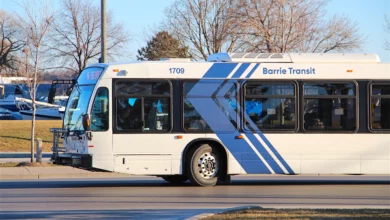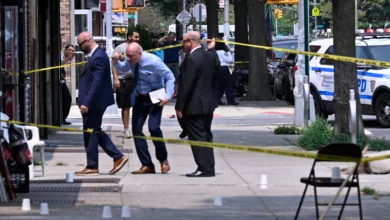Missouri School Board Considering Revised Version Of Anti Racism Resolution After Initial Rejection
In the wake of the tragic police killing of George Floyd in 2020, the Francis Howell School District, situated in the suburban area of St. Louis, took a decisive step forward by adopting an anti-racism resolution. This resolution, aimed at addressing racial discrimination, bigotry, and violence irrespective of race, ethnicity, nationality, religion, $exual orientation, gender identity, or ability, symbolized the district’s commitment to fostering an inclusive and equitable learning community. Follow Our website TheGossipsWorld Media for the latest updates!!!!!

Missouri School Board Considering Revised Version of the Anti-Racism Resolution
In a recent turn of events, the Francis Howell School Board, now controlled by a conservative majority, voted to revoke the anti-racism resolution passed in August 2020. The decision came to light during an emotionally-charged meeting on July 20, which saw the rescinding of various resolutions, including the anti-racism commitment.
Many members of the community who attended the meeting expressed their disapproval of the board’s decision, rallying behind signs that read “Forward, not backward.” The revocation of the resolution has stirred debates and raised concerns among students, parents, and educators alike.
The President’s Stand
Randy Cook, the president of the Missouri school board, acknowledges the significance of the anti-racism resolution but raises concerns about certain terms within it. Cook suggests that expressions like “systemic racism” might be open to different interpretations, leading to ambiguity and potential
miscommunication. While the revocation of the resolution has generated debate, Cook indicates that a revised version of the resolution could be a potential path forward. This revised resolution would aim to address the concerns raised while still upholding the district’s commitment to combatting racial discrimination.
Francis Howell School District
To fully understand the context surrounding the anti-racism resolution and its revocation, we must delve into the history of the Francis Howell School District. With an enrollment of 17,000 students, the district
stands as one of the largest in the state of Missouri. However, it’s important to note that approximately 87% of these students are White, highlighting a historical lack of diversity within the school community. This demographic makeup has been a subject of concern, prompting the need for initiatives such as the anti-racism resolution.
The 2020 Anti-Racism Resolution
The adoption of the anti-racism resolution in 2020 was a pivotal moment for the Francis Howell School District. It marked a turning point in acknowledging the nationwide reckoning that followed the tragic
events surrounding George Floyd’s death. By taking a firm stance against racism, discrimination, and violence, the district sought to send a powerful message of support and solidarity to its diverse student body. The resolution aimed to foster an environment that celebrates diversity and ensures equal opportunities for every student, regardless of their background.
The Conservative Majority’s Perspective
The recent shift in the school board’s composition has led to a different perspective on the anti-racism resolution. Endorsed by the conservative political action committee (PAC) called Francis Howell Families, the newly elected members brought with them a distinct viewpoint. Characterizing the resolution as
“woke activism,” the PAC’s platform highlights concerns about critical race theory, white privilege, equity of outcomes, identity politics, intersectionalism, and Marxism. This viewpoint played a crucial role in shaping the decision to revoke the existing resolution and draft a new one that aligns with these principles.
The Need for Dialogue and Understanding
As the debate surrounding the anti-racism resolution continues, it becomes evident that dialogue and understanding are essential to finding common ground. Students, parents, educators, and community
members must engage in constructive conversations to bridge the gap between opposing perspectives. By fostering an environment of empathy and mutual respect, the district can move towards a resolution that reflects the aspirations of the entire community.






